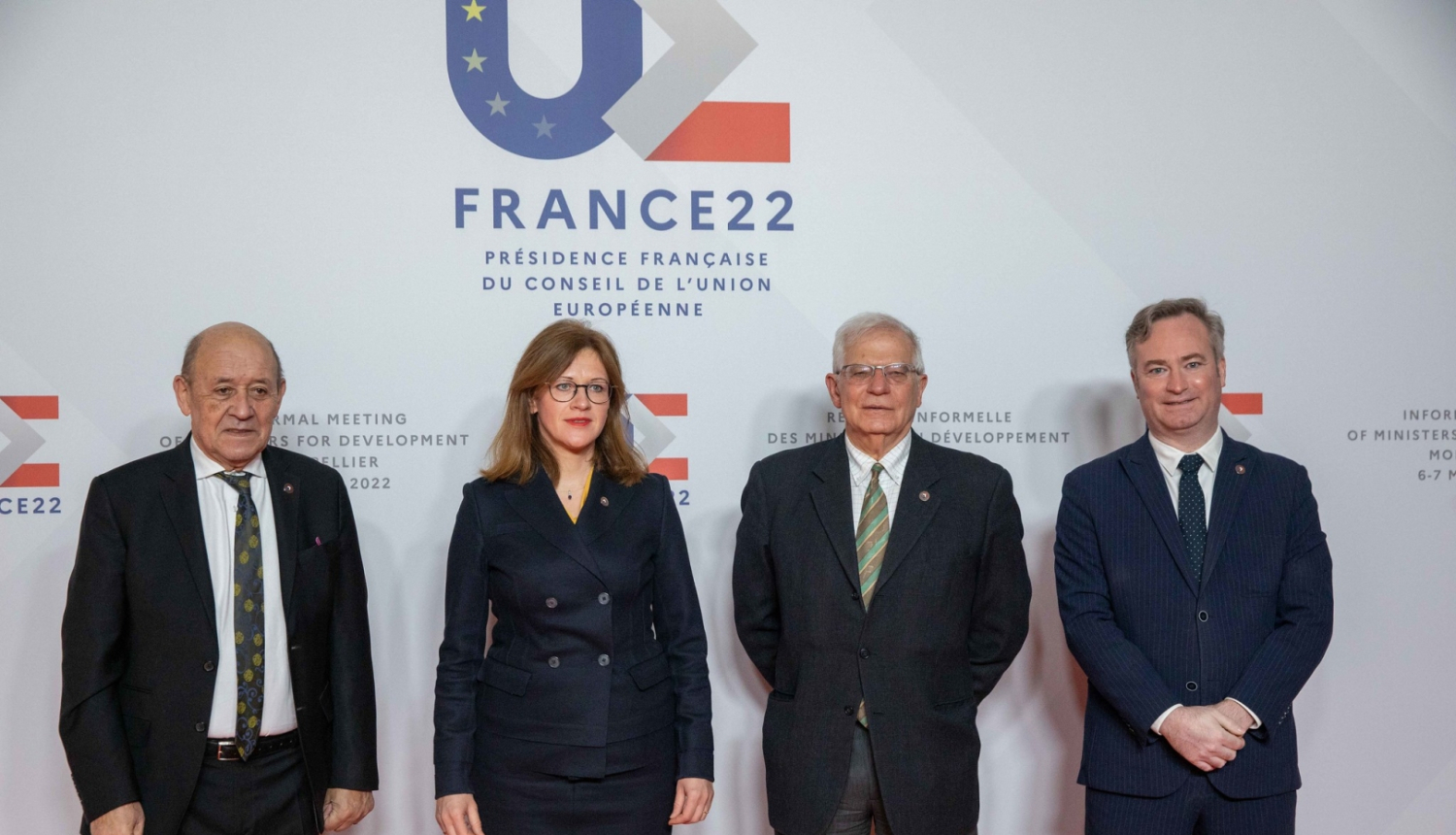On 6 and 7 March 2022, the Parliamentary Secretary of the Ministry of Foreign Affairs of Latvia, Zanda Kalniņa-Lukaševica, took part in an informal meeting of the European Union’s Foreign Affairs Council (Development) in Montpelier, France. Discussions focused on Ukraine, the EU’s humanitarian aid efforts, and development cooperation.
Ukrainian people have already been suffering for 12 days because of Russian invasion. Reports of humanitarian catastrophe in Mariupil, Kharkiv and other cities highlight the urgent need for humanitarian corridors more than ever.
This is the time that calls for prompt action, the Parliamentary Secretary said. Through joint effort, it would be possible for us to further accelerate EU-level coordination and cooperation in order to sooner deliver the necessary humanitarian aid to Ukraine. We must also make every effort and beyond that to enable people to evacuate from cities being bombed and shelled by Russian forces, Zanda Kalniņa-Lukaševica said in her address to her counterparts.
The Parliamentary Secretary underlined that Latvia, in addition to humanitarian aid, was prepared to adjust its long-standing development cooperation activities in Ukraine to meet the needs of the Ukrainian people and administration. She also noted that Latvia would increase its support for the media in a broader region, offer medical care to those wounded in action and provide psychological assistance, especially to women and children, as well as supporting Moldova.
To stop Russia’s aggression and war crimes it must be ensured that Russia is no longer able to finance further military action, Zanda Kalniņa-Lukaševica underlined. She called for an immediate implementation of all the sanctions adopted and for passing decisions, without delay, on the expansion and deepening of further sanctions on Russia and Belarus.
Another agenda point was the geopolitical role of the EU’s development cooperation policy. The Parliamentary Secretary underlined the EU’s values as the crosscutting idea behind its development policy. Unity and a firm stance in all the international formats increase the visibility of the EU as a global player, which is also evidenced by joint response measures to Russia’s aggression against Ukraine. The EU’s unity and capacity for action are historically at their highest.
Background information:
The EU’s Foreign Affairs Council in the configuration of ministers in charge of development cooperation considers matters related to development cooperation and humanitarian assistance. The meetings are chaired by the High Representative of the European Union for Foreign Affairs and Security Policy, Josep Borrell.




